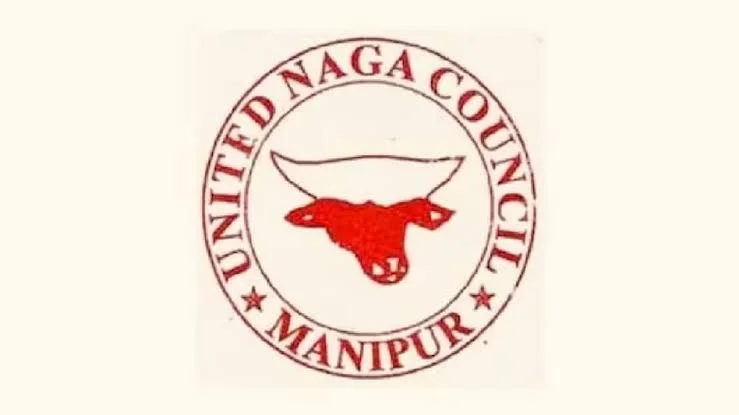70 Acres of Illegal Poppy Cultivation Destroyed in Manipur’s Ukhrul District
Summary of the News
In a decisive move against narcotics, Manipur authorities have successfully destroyed 70 acres of illegal poppy cultivation in Ukhrul district. The operation, carried out by a joint team comprising the Manipur Police, Assam Rifles, and the Forest Department, targeted plantations across three villages. This effort aligns with the state’s ongoing ‘War on Drugs’ campaign to eradicate drug production and trafficking. The authorities also dismantled huts within the fields and are investigating the individuals behind this illicit activity.
Manipur’s Bold Fight Against Illegal Poppy Cultivation
Manipur, known for its lush landscapes and cultural diversity, has unfortunately become a hotspot for illegal poppy cultivation. The state’s geography, coupled with socio-economic challenges, has made it a preferred ground for such illicit activities. However, the government is determined to root out this menace, as evidenced by recent operations in the Ukhrul district.
What’s the Big Deal About Illegal Poppy Cultivation?
Why is illegal poppy cultivation such a pressing issue? Well, poppy plants are the primary source of opium, which is further processed into heroin and other narcotics. These drugs fuel a global crisis of addiction and crime, with significant local impacts. For Manipur, this issue isn’t just about breaking laws—it’s about safeguarding the health, environment, and socio-economic well-being of its people.
The Operation: A Bold Step Forward
The recent crackdown in Ukhrul district on December 16, 2024, was no small feat. It targeted plantations in three villages—Phalee, Tora, and Champhung—known for their rugged, inaccessible terrain. The joint team destroyed 70 acres of poppy fields and burned 13 makeshift huts that supported the cultivation process. While this is a significant achievement, it’s just one part of a broader battle against drug production and trafficking.
Why Do Farmers Turn to Poppy Cultivation?
Let’s address the elephant in the room: Why are people growing poppy in the first place? The answer lies in economic desperation.
- Lucrative Returns: Traditional farming of rice, maize, or pulses barely sustains families in the hilly terrains of Manipur. Poppy cultivation, on the other hand, offers sky-high profits in a shorter time. It’s an irresistible lure for those with limited options.
- Lack of Infrastructure: In remote villages, access to markets and agricultural support is minimal. This lack of support forces farmers to resort to crops that are easier to grow and sell covertly.
- Organized Networks: Farmers are often pawns in a larger game. Powerful drug cartels provide seeds and ensure buyers, making it a relatively risk-free business for the growers themselves.
The Impact of Illegal Poppy Cultivation
It’s easy to think of poppy cultivation as a localized issue, but the repercussions are far-reaching.
Environmental Consequences
Imagine acres of pristine forests being cleared for poppy plantations. The damage doesn’t stop there—soil fertility is degraded, water sources are polluted, and biodiversity takes a massive hit. This environmental destruction is often irreversible, leaving a barren legacy.
Social Consequences
Illicit poppy farming isn’t just about drugs; it creates a ripple effect. Substance abuse, particularly among youth, becomes more prevalent in areas near cultivation zones. Families are torn apart, crime rates spike, and communities bear the brunt of these harmful side effects.
Economic Consequences
While farmers might earn short-term profits, the larger economy suffers. Law enforcement expenses increase, public health systems are strained by rising addiction, and the state’s reputation takes a hit, deterring investors and tourists alike.
Manipur’s ‘War on Drugs’: A Glimmer of Hope
The government’s ‘War on Drugs’ campaign, launched in 2018, is a multipronged approach to eradicate drug-related issues. It’s not just about burning poppy fields; it’s about breaking the cycle of addiction and crime at every level.
Key Achievements So Far
- Massive Crackdowns: Over 19,000 acres of poppy fields have been destroyed across the state.
- Collaborative Efforts: Teams comprising police, paramilitary forces, and forest officials work together for these operations.
- Technology Usage: Tools like drones and GIS mapping have been employed to identify hidden plantations.
Alternative Livelihoods
One of the standout strategies of this campaign is offering alternatives to farmers. Projects promoting sustainable crops like ginger, turmeric, and medicinal plants aim to provide a steady income without harming the environment.
The Role of Communities in Fighting Drug Cultivation
The fight against illegal poppy cultivation isn’t just the government’s responsibility—it’s a collective effort. Villagers, local leaders, and NGOs all play a critical role.
Awareness Campaigns
Educating farmers about the long-term consequences of poppy farming is crucial. These campaigns highlight the legal risks and provide insights into alternative crops.
Support Networks
Local groups help farmers transition to legal farming by providing seeds, training, and connections to markets. This hands-on support ensures they don’t fall back into illegal practices.
Technology: The Game Changer
Advanced technology is making it harder for illegal cultivators to operate in the shadows. Drones, satellite imagery, and GIS tools are being used to locate poppy fields, even in the most remote areas. This data-driven approach ensures that resources are deployed effectively during operations.
What Lies Ahead?
While significant strides have been made, challenges remain. Organized drug networks continue to exploit economic vulnerabilities, and the porous borders with Myanmar complicate enforcement. However, with sustained efforts, the battle can be won.
- Policy Strengthening: Tougher penalties for drug-related offenses can deter offenders.
- Economic Development: Boosting infrastructure in remote villages will empower farmers to choose lawful livelihoods.
- International Collaboration: Coordinating with neighboring countries can disrupt cross-border drug trafficking.
A United Front for a Drug-Free Future
The destruction of 70 acres of illegal poppy cultivation in Ukhrul is a step in the right direction, but the journey is far from over. By tackling this issue head-on and addressing its root causes, Manipur can lead the way in creating a drug-free, prosperous future.
FAQs
- Why is poppy cultivation illegal in India?
Poppy cultivation is illegal because it serves as the raw material for narcotics like heroin, which contribute to addiction and crime. - What is the ‘War on Drugs’ campaign?
It’s an initiative by the Manipur government to eradicate drug production and trafficking, involving strict enforcement and community engagement. - How does poppy farming affect the environment?
It leads to deforestation, soil degradation, and loss of biodiversity, making the land unsuitable for other crops. - What are the alternatives for farmers involved in poppy cultivation?
Sustainable crops like turmeric, ginger, and medicinal plants are being promoted as viable alternatives. - How does technology help in combating illegal cultivation?
Tools like drones and GIS mapping enable authorities to locate and target illegal plantations efficiently.



